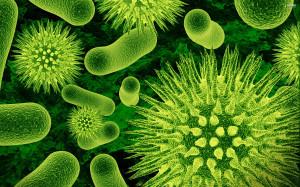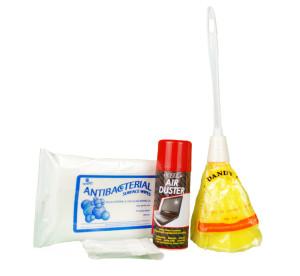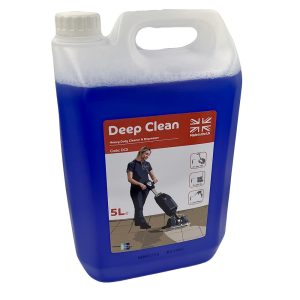We survived blue Monday and it isn’t much longer until January is over, but what do you do about the colds colleagues have and spread by coughing and sneezing?
After being ill last week with tonsillitis, I decided to research how often we should be cleaning in our workplaces to make sure that we don’t pick up, or pass on, any bugs and illnesses to other colleagues. Did you know that by frequently disinfecting your desk you can reduce sick days by 30%? That means you’ll be able to meet all of those month end deadlines!
How to Clean Desks
With the fast paced environment that we live in these days, it’s not uncommon for people to eat their lunch or other snacks at their desks. Women are most likely to eat at their desks, with 60% confirming that they do, but of course that’s because women are good at multitasking! On the other hand it is reported that only 42% of men eat at their desks.
But next time you think of eating a snack whilst at work, remember that your desk can harbour 400 time more bacteria than a toilet seat. As well as that, did you know that the average office worker comes into contact with 10 million bacteria a day? If that isn’t enough to make you clean your desk regularly then I don’t know what will. 
One of the major areas that has the most germs in an office is the keyboard. Multiple people might use one keyboard, and if someone has a cold they will sneeze in their hand then carry on typing, making the keyboard have more bacteria than a toilet. But toilets are regularly cleaned, what about your keyboard?
Your office phone is another area that can get very dirty with bacteria and germs as it touches your face, hands, ears and mouth. Do you have drinks on your desk? Maybe a water bottle or a mug of tea and coffee. Leaving those used mugs on your desk can be a breading ground for bacteria. Always make sure that you clean anything you drink from regularly instead of leaving them on your desk to become dirty and potentially mouldy. And for things such as water bottles, take them home and thoroughly wash them before bringing them back to work.
Pens and pen holders are often a hot spot for germs, especially when coworkers borrow pens as their hands can carry other germs that yours do not. Pay special care if someone has borrowed a pen of yours and you’re using it after, as many people mindlessly chew the end of their pen, meaning numerous amounts of bacteria are going directly into your body which can make you unwell.
Fortunately, we have the remedy for you on how to keep everything sparkling clean. We sell a keyboard cleaning kit which can help with almost every office appliance you use, meaning you will be less likely to catch any nasty bugs or colds.

Cleaning Office Equipment
The keyboard is a very awkward piece of equipment to clean because dust, dirt and pieces of food can collect between the keys and it can be hard to access to clean. In our kit is a can of compressed air, use this to spray between the keys to dislodge any pieces of dirt so that it will easily fall out of the keys for you to wipe up. As well as that, the can of air can be used to dislodge dust and dirt from the vents of the computer hard drive.
The keyboard cleaning kit also comes with a pack of 20 cotton buds that can be used in between the keys of the keyboard to dislodge pieces of dirt that the can of compressed air was not strong enough to tackle. The kit also contains a pack of antibacterial surface wipes which are brilliant at disinfecting desks as they kill listeria, E. Coli, and salmonella. These wipes are to be used on a mouse, the desk, and the keys of the keyboard as these are the areas that are touched most frequently, and harbour the most germs. And lastly, the keyboard kit comes with a feather duster that is also for cleaning in between the keys of the keyboard and combating any dirt lying under the keys. We also sell VDU wipes that can be used to clean telephones and computer screens.
Make sure that when cleaning telephones, a computer mouse, water bottles and desks that you thoroughly wipe anywhere that hands would come into contact with that particular appliance to make sure that you have wiped away any germs and bacteria.

